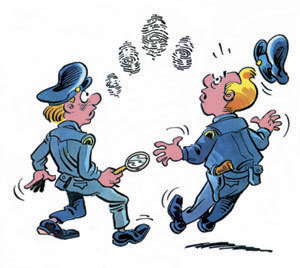-ology, -logy, -ologist, -logist
(Greek: a suffix meaning: to talk, to speak; a branch of knowledge; any science or academic field that ends in -ology which is a variant of -logy; a person who speaks in a certain manner; someone who deals with certain topics or subjects)
The word -ology is a back-formation from the names of certain disciplines. The -logy element basically means "the study of ____". Such words are formed from Greek or Latin roots with the terminal -logy derived from the Greek suffix -λογια (-logia), speaking, from λεγειν (legein), "to speak".
The suffix -ology is considered to be misleading sometimes as when the "o" is actually part of the word stem that receives the -logy ending; such as, bio + logy.
Through the years -ology and -logy have come to mean, "study of" or "science of" and either of these suffixes often utilize the form of -ologist, "one who (whatever the preceding element refers to)".
The examples shown in this unit represent just a small fraction of the many words that exist in various dictionaries.
Hank's web site emphasized content about cybervexes and their related ensign knowledge.
2. The science of gestation in its medical aspects.
2. Etymology: from Greek κύων (gen. κύνος), cyn, kyn, "dog" and λόγος, logos, "knowledge".
Cytopathology relates to the set of features, or conditions, associated with a diseased cell or cells.
2. That branch of archeology that deals with engraving of gems.
2. Talking" or communicating with the fingers and hands.
3. A method of communication used by deaf-mutes, involving symbolic expressions with the fingers and hands.
4. The study of fingerprints for purposes of identification: The following illustration provides evidence that dactylology indicates that a thief must be very large as shown by the size of the prints left by his fingers.
The use of dactylology can provide evidence from a crime scene that an important method of forensic science, or the use of technical methods to solve crimes, can be utilized to find out who committed them.

The phrase "dark biology" was coined by the science writer and novelist Richard Preston in his self-described "trilogy on dark biology": The Hot Zone (1994), The Cobra Event (1997), and The Demon In the Freezer (2002).


